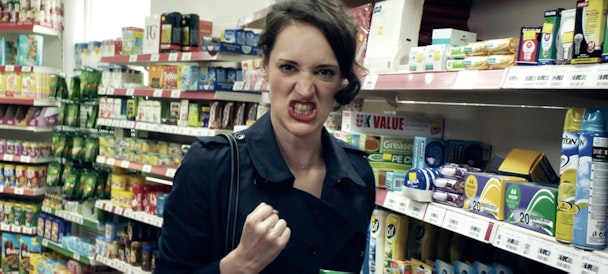Good news for UK broadcasters, streaming giants earn much less social media buzz
Streaming giants are struggling to attract as much social media buzz as traditional UK broadcasters with linear channels, according to a study into social TV from Kantar.

BBC's Fleabag, now on Amazon Prime
The BBC was the most-tweeted-about broadcaster, with its linear channels, accessible catch-up and quality productions, driving watercooler moments. Fleabag season two, which ran in March 2019, is a prime example of this, although it has found a global home now on Amazon's service.
The research conducted between 1 December 2018 and 30 November 2019, found that the BBC boasted 28m tweets, followed by ITV at 14.9m, ITV2 at 8.9m and BBC 2 at 6.8m. Netflix came in sixth with 6m, and Amazon in 10th at 1.5m.
Reality and entertainment TV drove the highest number of social mentions. The nature of these shows are suited for live viewing, as a result, 21% of TV-related social media activity took place during the linear broadcast window. Subscription video on demand (SVOD) services are at a disadvantage as users can binge niche content at their own discretion without engaging in a broader conversion.
Netflix and Amazon lag behind when it comes to generating social media buzz. Netflix’s Black Mirror generating the most of all SVOD services, 1m tweets, although earlier seasons of the show built up a UK cult following as broadcast on Channel 4. For Netflix, Shadowhunters and Umbrella Academy followed at 508k and 500k respective respectively. Good Omens was Amazon’s only entry into the top five SVOD shows with 497k tweets.
With giants like Netflix upping their marketing spend, their consume on-demand model may mean they are losing out on mass word of mouth marketing that can drive greater audiences with a snowball effect. However, these services will likely make up the social numbers with their international audiences.
In the last year, there were 98m TV-related tweets; up a quarter on the previous year. ITV’s lightning in a bottle, Love Island attracted 8m tweets, was the most popular show. It is no surprise that ITV has doubled down on its coverage of the show with a winter edition on the slate. Following that, tent pole current affair shows like Question Time (6m) and Good Morning Britain (3m) followed, buoyed by outrage machine Piers Morgan who we’ll remember aided the success of the vegan sausage roll.
Looking at one-off broadcasts, Eurovision 2019 attracted the most tweets, almost 9m. The Brit Awards took 5m and the opening episode of Love Island Series 5 snatched 2 million.

The conversations drove a total of 41 billion impressions over the year.
Mark Inskip, chief executive of UK and Ireland for Kantar’s media division, said: “The way in which we consume TV may be evolving at a rapid pace, but one thing remains the same: people have their favourite programmes and they like to talk about them. More than ever, we are seeing Brits take to social media to share their views and opinions on TV content and while an increasing volume of that conversation is happening outside of the traditional broadcast window, linear TV channels and programmes are still reigning over on-demand disruptors.
“For brands and broadcasters, it’s critical to understand the ways in which viewers are watching – and engaging with – TV programmes, adapting their strategies to work with consumers on their terms, providing them with the content they want, where they want it, when they want it.”

